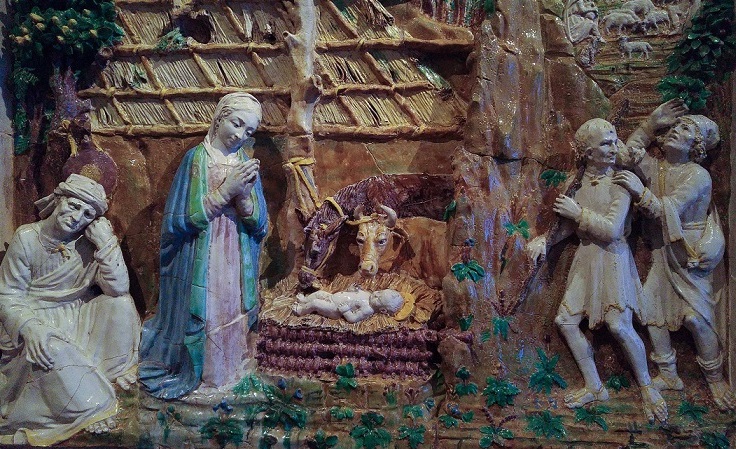In the past few weeks, a theme has emerged in my Advent singing and Scripture reading: fear.
Fear is all around us. A recent book about a fearmongering president is on the bestseller list. Politicians and pundits stoke a public paranoia, using it to boost their own power. Credible scientific reports alert us to the troubling facts surrounding present and future climate change.
As the church faces new realities, we wonder how we will live as faithful disciples in a scary and uncertain future. And in our private lives, there is the threat of broken relationships, illness, death, financial uncertainty, and sometimes the debilitating anxiety caused by mental illness.
It’s in the Bible, too. Already in Chapter 3 of Genesis, fear rears its head. “I heard the sound of you in the garden,” Adam tells God. “And I was afraid. . . .”
While the “fear of the Lord” is praised in the Bible’s wisdom literature, in the biblical narratives fear of other people and of future events plays a significant role. Sarah is anxious over Hagar’s and Ishmael’s influence, Moses and Gideon face the uncertainties of stepping into leadership, in the exile the people of Israel live out the realities of displacement, prophets fear speaking on the Lord’s behalf. In the New Testament, Jesus acknowledges his disciples’ fears, as they attempt to walk on water or face an empty tomb.
What bad things will happen next? The gift of an active imagination can create beautiful works of art, music and literature. But our imagination can also fuel deep fears that stoke conflict and paralyze individuals and groups.
In the Advent and Christmas stories, fear is a prelude to God’s bringing new and wonderful things into the human story.
“Do not be afraid, Zechariah, for your prayer has been heard. Your wife Elizabeth will bear you a son,” an angel tells Zechariah, the father-to-be of John the Baptist (Luke 1:13). The angel Gabriel surprises a peasant girl: “Do not be afraid, Mary, for you have found favour with God. And now, you will conceive in your womb and bear a son” (Luke 1:30). Her fiancé hears an angel say, “Joseph, son of David, do not be afraid to take Mary as your wife, for the child conceived in her is from the Holy Spirit” (Matthew 1:20). The astonished shepherds hear an angel announce, “Do not be afraid; for see—I am bringing you good news of great joy” (Luke 2:10).
These individuals stepped beyond their fear and invited the surprising action of God into their lives. Unlike King Herod, who unleashed violence because he feared losing earthly power, they consented to take part in God’s peaceful dream for the world.
The challenge, in our age of anxiety, is to acknowledge the fears but not to let them keep us from participating in the new things the Spirit has in store. What a shame if fear stifles our ability to offer hospitality and prevents us from using our imagination for good deeds rather than for despair!
In the Scriptures, God repeatedly reassures those who fear: I am with you; I have great plans for you; I will give your strength; I will deliver you; I love you. In the words of Jesus: “Peace I leave with you; my peace I give to you. I do not give to you as the world gives. Do not let your hearts be troubled, and do not let them be afraid” (John 14:27).
So, with songwriter Charles Wesley, we pray: “Come, thou long-expected Jesus!/ Born to set thy people free, / from our fears and sins release us / let us find our rest in thee. / Israel’s strength and consolation, / hope of all the earth thou art, / dear desire of every nation, / joy of every longing heart. (Hymnal: A Worship Book, No. 178).
As we welcome the Christ Child, may this be a season free from fear and anxiety. May the assurance of Emmanuel calm our hearts and give us bold courage for the coming year.
Holiday schedule
Canadian Mennonite is entering into another three-week cycle of publication. Our next issue will be mailed on Jan. 7, 2019. After that, we will return to our regular two-week publishing schedule.








Leave a Reply
You must be logged in to post a comment.